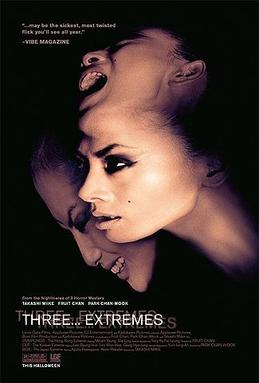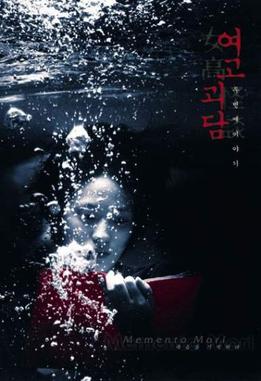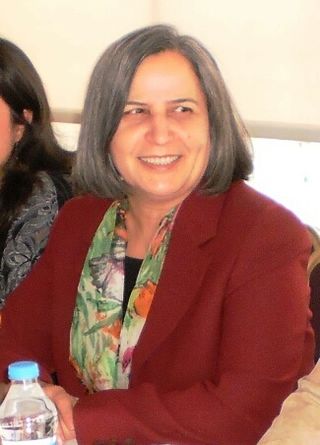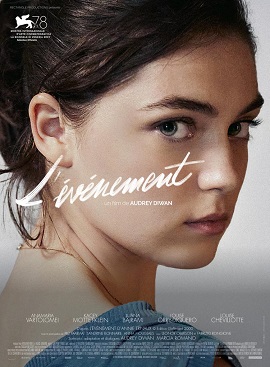
Ayşe Ajda Pekkan is a Turkish singer. She is known by the title "superstar" in the Turkish media. Pekkan became a prominent figure of Turkish pop music with her songs, in which she tried to create a strong female figure. By keeping her works updated and getting influence from Western elements, she managed to become one of Turkey's modern and enduring icons in different periods. Her musical style has kept her popular for more than 50 years and has inspired many of her successors. Pekkan is highly respected in the music industry and her vocal techniques together with many of her albums were praised by music critics.

Cinema of Turkey or Turkish cinema, or Türksineması refers to the Turkish film art and industry. It is an important part of Turkish culture, and has flourished over the years, delivering entertainment to audiences in Turkey, Turkish expatriates across Europe, Balkans & Eastern Europe, also more recently prospering in the Arab world and to a lesser extent, the rest of the world.

Three... Extremes is a 2004 horror anthology film. A follow-up to Three (2002), it follows the same concept of three individual segments by directors from three East Asian countries.

Memento Mori is a 1999 South Korean horror film, and the second installment of the Whispering Corridors film series. It is a sequel to 1998's Whispering Corridors, and is also set in an all-girls high school, but the films are otherwise unrelated. Memento Mori was one of the first Korean commercial films to depict lesbian characters. However, prevailing Korean attitudes constrained its potential to be widely viewed, even more so as the controversial themes targeted the teen demographic.

The Democratic Society Party was a Kurdish nationalist political party in Turkey. The party considered itself social-democratic and had observer status in the Socialist International. It was considered to be the successor of the Democratic People's Party (DEHAP). The party was established in 2005 and succeeded in getting elected more than ninety mayors in the municipal elections of 2009. On 11 December 2009, the Constitutional Court of Turkey banned the DTP, ruling that the party has become "focal point of activities against the indivisible unity of the state, the country and the nation". The ban has been widely criticized both by groups within Turkey and by several international organizations. The party was succeeded by the Peace and Democracy Party.

Güler Sabancı is a Turkish businesswoman, a third-generation female member of the Sabancı family, and the chairperson of the family-controlled Sabancı Holding, the second-largest industrial and financial conglomerate in Turkey. As of 2020, she is listed as the 76th most powerful woman in the world by Forbes, which first recognized her in 1999.
Korean horror films have been around since the early years of Korean cinema, however, it was not until the late 1990s that the genre began to experience a renewal. Many of the Korean horror films tend to focus on the suffering and the anguish of characters rather than focus on the explicit "blood and guts" aspect of horror. Korean horror features many of the same motifs, themes, and imagery as Japanese horror.

Işın Funda Büyükkaraca, better known as Işın Karaca, is a British-born Turkish Cypriot pop singer.

Women got full political participation rights in Turkey, including the right to vote and the right to run for officelocally in 1930. Article 10 of the Turkish Constitution bans any discrimination, state or private, on the grounds of sex. It is the first country to have a woman as the President of its Constitutional Court. Article 41 of the Turkish Constitution reads that the family is "based on equality between spouses".

Büyü is a 2004 Turkish horror film directed by Orhan Oğuz.

Gültan Kışanak is a Kurdish journalist, author and politician from Turkey. Kışanak was born in Elazığ in 1961. Her family is originally from Dersim. She is a former member of the Grand National Assembly of Turkey and Head of Municipality of Diyarbakır. She has been imprisoned since October 2016.

The Voice is a 2010 Turkish horror film, directed by Ümit Ünal, about a young woman who begins to hear a strange voice whispering to her. The film opened on nationwide general release across Turkey on March 5, 2010.
Meryem Sarah Uzerli is a German Turkish model and actress best known for Muhteşem Yüzyıl (2011-2013) and Kovan (2018). She is the recipient of two Golden Butterfly Awards. She has been named as one of the most beautiful actresses of all time by the World of Statistics.
Hazar Ergüçlü is a Turkish-Cypriot actress. She is best known for playing Simay Canay in the drama series Kuzey Güney (2011–2013) and Eylül on the Turkish drama series Medcezir (2013–2015).
Abortion in Northern Cyprus is regulated by law.
Neslihan Atagül is a Turkish actress. She is best known for her role in Kara Sevda (2015–2017), a series sold to more than 110 countries and the only Turkish TV series winner of the International Emmy Award (2017). She had leading roles in the series Fatih Harbiye (2013–2014) and in the films Araf and Senden Bana Kalan. Throughout her acting career, she has received numerous awards and accolades, including the Academy Award for "Best Actress" at the Tokyo International Film Festival.

Alina Boz is a Russian-born Turkish actress. She gained recognition for her work as Eda in the Netflix series Aşk 101 and Mahur Türel in the TV series Maraşlı.

Happening is a 2021 French drama thriller film directed by Audrey Diwan. The film's adapted screenplay was written by Diwan and Marcia Romano from the memoir Happening by Annie Ernaux published in 2000. The film stars French-Romanian actress Anamaria Vartolomei as the main character, Anne, and her emotionally and physically traumatic process of obtaining and receiving an abortion before it was legalized in France. The film also stars Luàna Bajrami, Pio Marmaï, Sandrine Bonnaire, Anna Mouglalis, Louise Chevillotte, Kacey Mottet Kelin, and Louise Orry-Diquéro in supporting roles with cinematography by Laurent Tangy.













